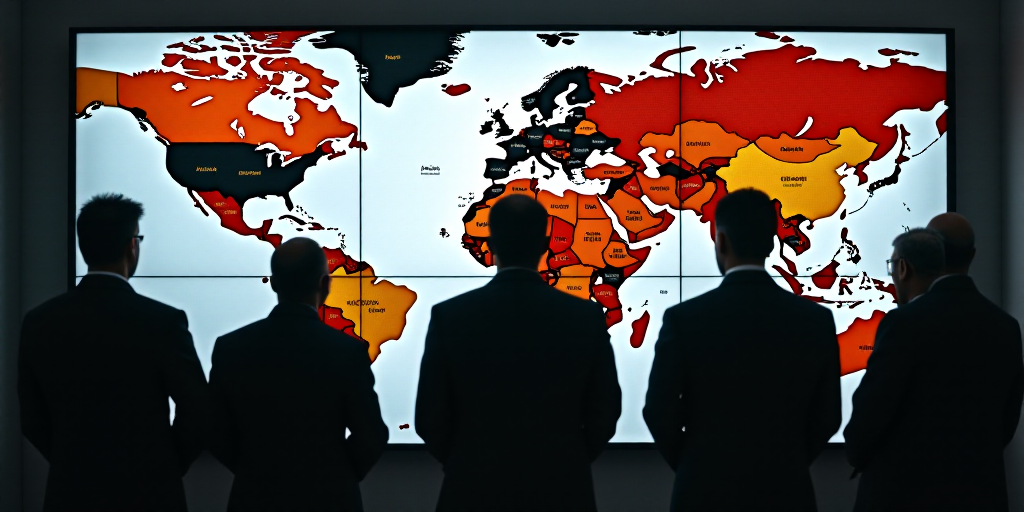Background and Context
On Monday, Israel launched an attack on the Evin prison in Tehran, a prominent symbol of Iran’s government system. This attack is described by Israel as the most intense bombing of Tehran to date, following a day after the United States joined the war by targeting Iran’s nuclear facilities.
Iran has repeatedly threatened retaliation against the United States since joining the conflict. However, no significant action has been taken more than 24 hours after U.S. bombers targeted Iran’s underground nuclear facilities with explosives. Meanwhile, U.S. President Donald Trump has spoken about overthrowing the Iranian government.
Impact on Oil Prices and Regional Tensions
Oil prices remained relatively stable on the first day of operations following U.S. involvement, suggesting that market operators doubted Iran’s ability to disrupt oil supply from the Gulf. The Iranian judiciary’s Mizan news outlet confirmed the prison attack, stating that part of the building sustained damage but the situation was under control.
Evin prison has been a primary facility for housing political detainees and security prisoners, especially since the 1979 Iranian Revolution. It has also held several high-profile foreign prisoners. Israeli Defense Minister Israel Katz clarified that Israel’s attacks were no longer limited to initially declared targets, such as Iran’s nuclear program and its missile capabilities. Instead, Israel aims to undermine Tehran’s ability to maintain power.
Iran’s Limited Options
Since Trump joined Israel’s campaign by launching powerful bombs against Iran’s nuclear facilities on Sunday morning, Iran has repeatedly threatened retaliation. Despite firing missiles at Israel, Iran has not yet taken action against the United States, such as targeting U.S. bases or disrupting 20% of the world’s oil shipments passing near its coast in the Persian Gulf.
“Mr. Trump, the player, may start this war, but we will finish it,” said Ebrahim Zolfaqari, spokesperson for Iran’s central military headquarters Jatam al Anbiya, in a video statement. The Trump administration has consistently stated that its goal is to destroy Iran’s nuclear program, not initiate a broader war.
However, in a social media post, Trump mentioned overthrowing Iran’s hardline clerical leaders who have been Washington’s primary adversaries in the Middle East since the 1979 Iranian Revolution. “It may not be politically correct to use the term ‘regime change,’ but if the current Iranian regime cannot make Iran great again, why not a regime change?” he wrote.
Additional Israeli Attacks
Israel’s aerial attacks against Iran have encountered little resistance from Iranian defenses since Israel’s surprise attack on June 13, resulting in the deaths of many top Iranian commanders. In an attempt to minimize panic, Iran has released limited images of damage since the early days of bombing. Internet access has been down for days, hindering information circulation within and outside Iran.
The Israeli military reported that a missile launched from Iran early Monday was intercepted by Israel’s defenses. Air raid sirens sounded in Tel Aviv and other central Israeli areas during the night. However, Iran’s capacity to retaliate is far more limited than a few months ago when Israel defeated Hezbollah, Iran’s most feared regional force, in Lebanon. Syrian President Bashar al-Assad soon fell afterwards.
Iran’s most effective threat to harm the West would be restricting global oil flows through the Strait of Hormuz, but crude oil prices have not surged to crisis levels.
After briefly exceeding $80 per barrel at the market opening, Brent crude futures rose only 0.5%, reaching $77.38, in early Monday trading. Prices had even dipped below that level during the morning.
While prices remain above pre-Israeli attack levels this month, experts say the current geopolitical risk premium of over $10 per barrel may not persist without tangible supply disruptions.
Key Questions and Answers
- Q: What is the significance of Evin prison? A: Evin prison has been a primary facility for housing political detainees and security prisoners in Iran since the 1979 revolution. It has also held several high-profile foreign prisoners.
- Q: How has Iran responded to U.S. involvement in the conflict? A: Despite threats, Iran has not taken significant action against the United States, such as targeting U.S. bases or disrupting global oil shipments.
- Q: What are Iran’s limited options for retaliation? A: Iran’s most effective threat to harm the West would be restricting global oil flows through the Strait of Hormuz. However, crude oil prices have not surged to crisis levels.
- Q: How have oil prices reacted to the conflict? A: Oil prices remained relatively stable on the first day of operations following U.S. involvement, suggesting that market operators doubted Iran’s ability to disrupt oil supply from the Gulf.






